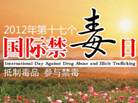古往今来,不同的政治体制体现了政治文明的多样性。阅读材料,回答问题
材料一:

材料二:
1933年5月17日,工业复兴法案提交国会。众议院仅作了个别补充,便在一个星期后以325票对76票通过了该议案,虽然个别议员对法案的卡特尔化(注:垄断性企业联合)倾向不满意,而更多的一些议员则不喜欢法案赋予总统和行政当局的独裁式的发放许可证的权力。……6月13日,在罗斯福总统的敦促下,参议院终于以46票比39票的接近票数通过,法案立即被送交总统签署。……1935年5月27日,最高法院在审理“谢克特兄弟家禽公司诉合众国”案中,以全体一致的判决,裁定《国家工业复兴法》违宪,从而宣判了该法的死刑。——胡国成《塑造美国现代经济制度之路》
材料三:
1953年1月毛 * * 亲自挂帅,领导中 * * 宪法起草小组进行宪法草案初稿的起草工作。1954年6月,中央人民政府委员会一致通过宪法草案并正式公布,交付全国人民讨论并征求意见。在随后的两个多月里,全国各界共有一亿五千多万人参加了宪法的讨论,又提出许多修改和补充意见。1954年9月,中华人民共和国第一届全国人民代表大会第一次会议以1197票赞成,全票通过了《中华人民共和国宪法》。——据《全国人民代表大会历届会议资料整理》
依据材料三结合所学知识,概括我国的民主政治建设具备哪些特点?
参考答案:
特点:中共领导;人民民主;民主集中。
解析:从材料“领导中 * * 宪法起草小组进行宪法草案初稿的起草工作”可以看出我国宪法的制定,体现了我国民主政治的中共领导的特点;“交付全国人民讨论并征求意见”体现了人民民主的特点;“中华人民共和国第一届全国人民代表大会第一次会议以1197票赞成,全票通过了《中华人民共和国宪法》”体现了民主集中的特点。

